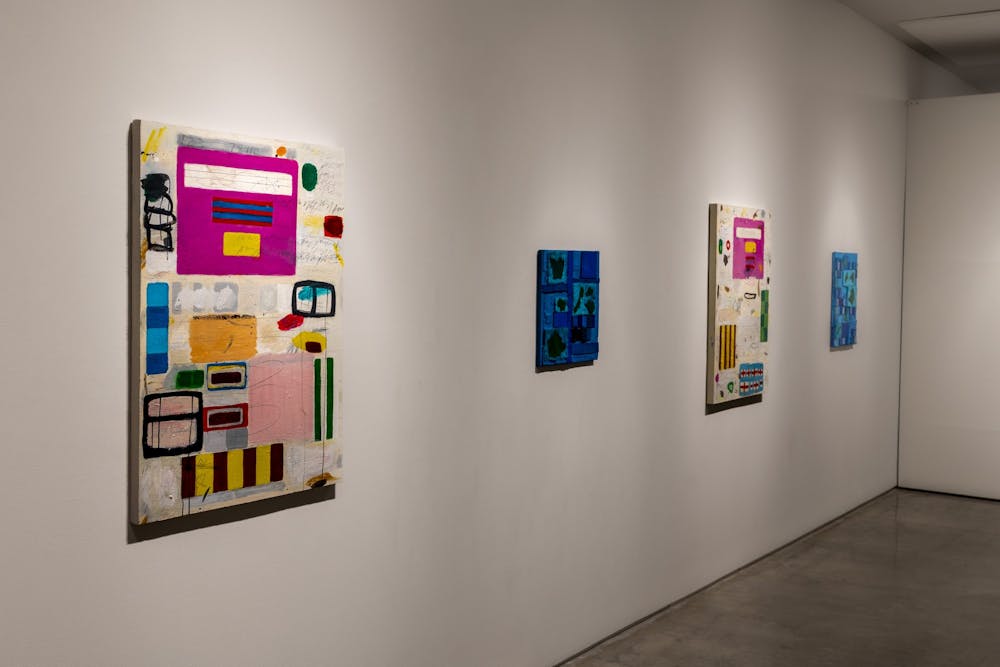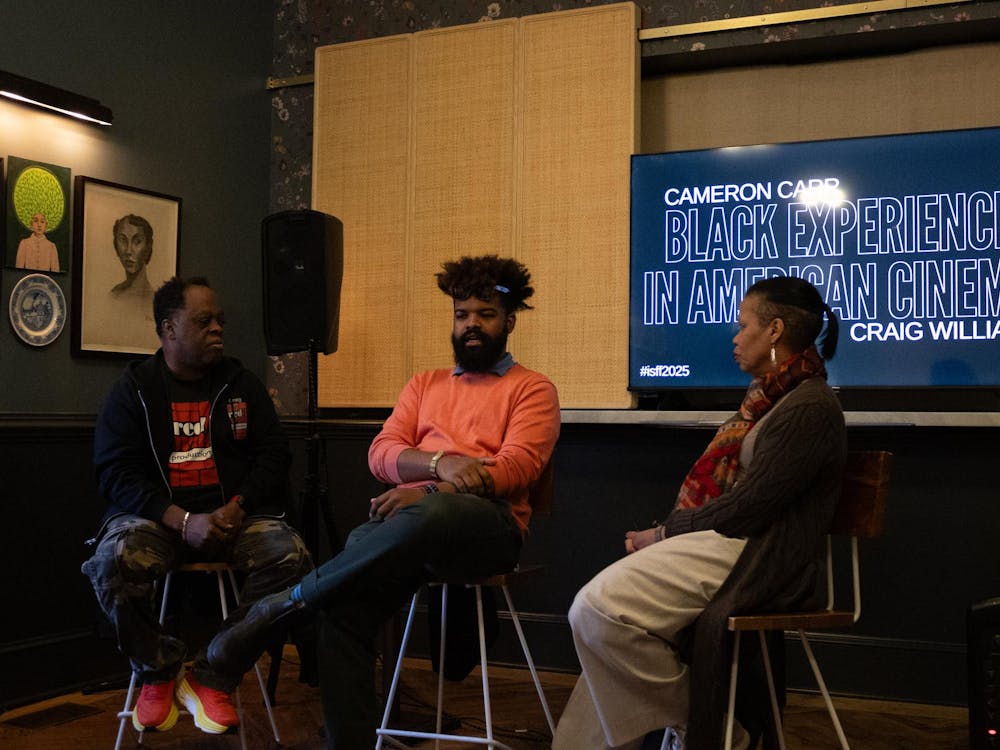Vibrant brushstrokes have depth underneath at Second Street Gallery’s “Mother Tongue” exhibit, on display from Feb. 3 through March 24. Showcasing the work of Class of 2018 alumna Valencia Robin — who graduated with an MFA in Creative Writing — the solo exhibition explores language with abstract paintings and mixed media art.
An award-winning Charlottesville-based poet and artist, Robin has been both harnessing and pondering the power of language for years. Specifically, she enjoys exploring “its joys, its limits and its relationship to history.”
“I take great pleasure in language’s ability to give expression to my imagination and experiences," Robin wrote in a statement accompanying the exhibit. “While words can never be the things they’re meant to represent, the work of trying to capture a particular moment — to place the words in the right order — can be extremely satisfying.”
The exhibit features 18 pieces and two poems. Each plays a role in depicting the complexities of verbal and written expression and Robin’s relationship with the latter. Each canvas is vivid and full of color, with pieces like “Research” and “Memory is a Strange Thing” layering acrylic paint over pencil to convey multiple themes simultaneously.
“I like acrylic paint because it dries quickly, which allows me to try one idea after another without waiting,” Robin said in an interview with The Cavalier Daily. “There are often dozens of other paintings underneath my finished work. I like the thick surfaces that layering produces. I also love the idea of all that hidden history.”
The trio of canvases that make up “Always Elsewhere” and “Poem for 17 Fingers” are some of the exhibit’s assemblages — artwork consisting of three-dimensional elements on canvas — which mix media. The combination of different textures and materials in these pieces shows another side of Robin’s aesthetic, a side that enjoys “arranging, shaping and building.”
In addition to visualizing language as a tool for self-expression, Robin’s work simultaneously touches on how language can be used as a tool for oppression.
“As an African-American woman from the working class, I’m all too aware of how the words I use and the way I speak [are] intricately bound up with power, how social spaces and institutions — schools, work, government — control the use of language, how language allows certain groups to gain credibility and access while marking others as unworthy of those things,” Robin said in her exhibition statement.
When asked if she taps into the same headspace when creating visual art that she does when creating poetry, Robin explained that while the two forms require different things — skills, processes and mindsets — they both come from the same urge to create. For her, her poetry and her paintings inspire and support each other.
“They’re like two rooms in the same house and the doors are always open,” Robin said.
“Mother Tongue” is an insightful collection of art conveying that language is not merely words, but a way to build community and preserve culture and history. Like poetry, Robin sees visual art as its own form of language — one that can sometimes communicate what cannot be verbalized.
“Everything I do creatively is about language in a sense, about trying to turn what I’m thinking and feeling into something I can actually see and touch,” Robin said.
Robin is currently working on getting the exhibit into other gallery spaces. At the same time, Robin is engaged in new and exciting creative projects. She is in the process of creating a series of collages, as well as getting into video — a combination that she believes will allow her to bring poetry and visuals together “organically.”
Before the exhibit closes at Second Street Gallery, opportunities and activities have been arranged to give the community chances to interact with the art and Robin. Second Street Gallery is inviting writers of all ages to submit pieces of writing — poems, essays or short stories — in response to the feelings or thoughts that the pieces in the exhibit elicit. All submissions are due March 10. Robin will be returning to the gallery for a hands-on art workshop March 18.
Robin is also a teacher and an arts administrator. She leads young people and adults in writing workshops and travels around the country to do readings at colleges and universities.







